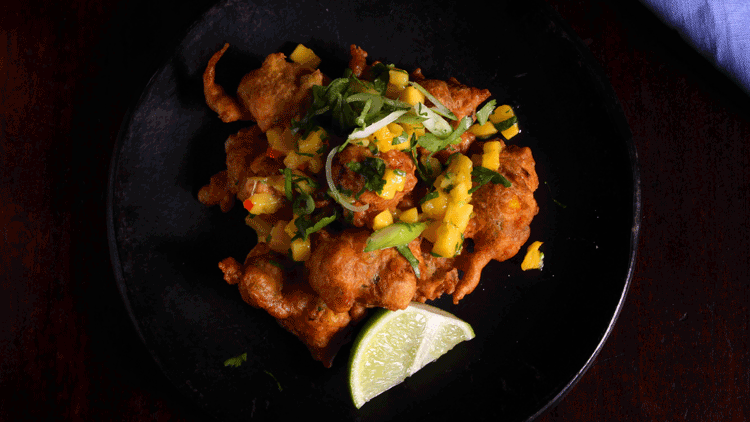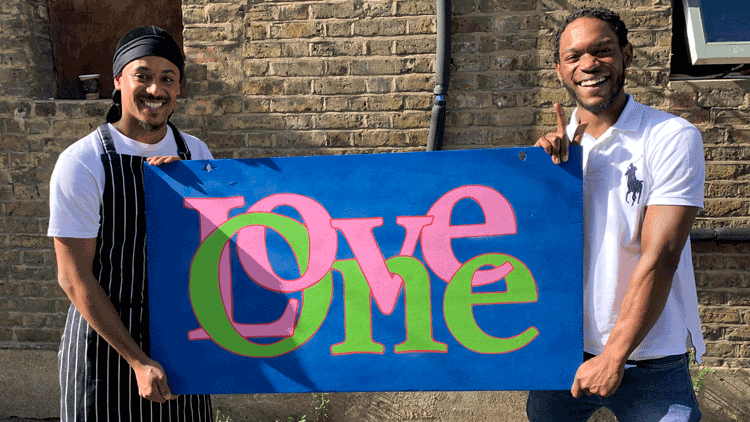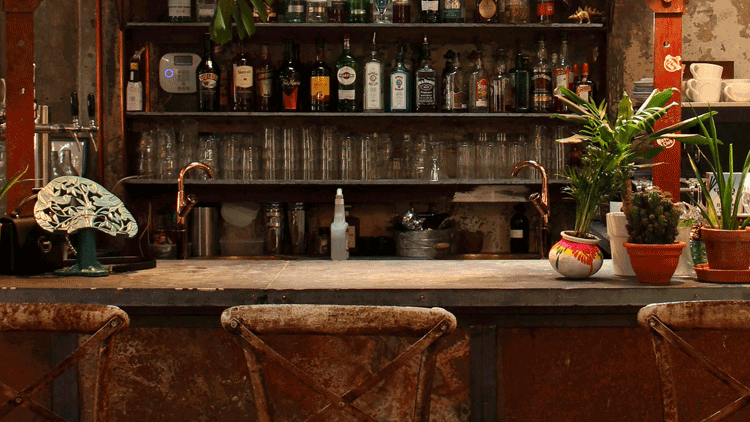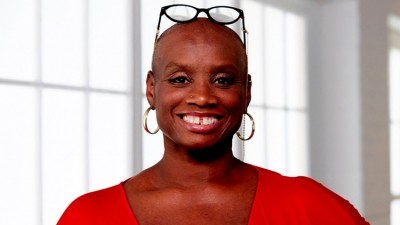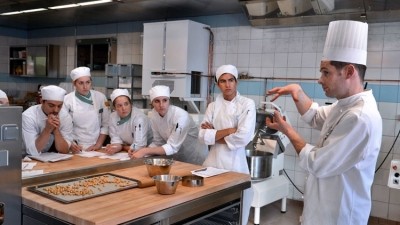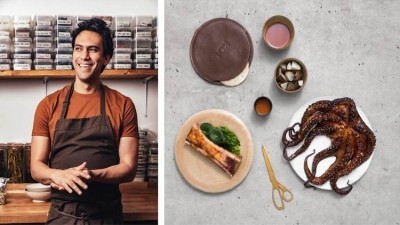One Love: “We’re surrounded by people telling us how to stay apart - we want to remind people of what keeps us together"
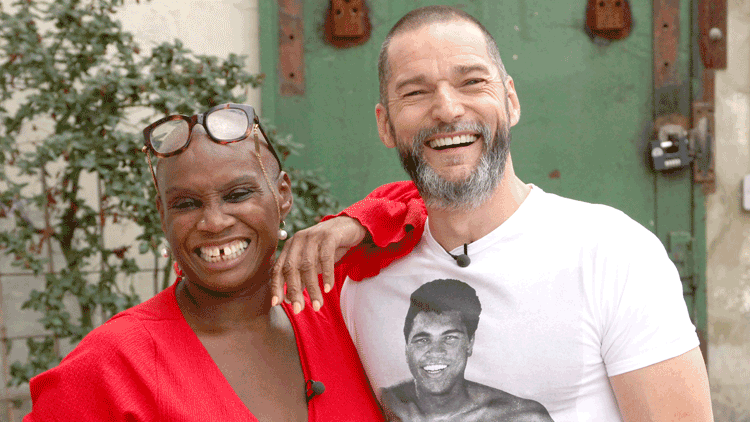
One Love, the Caribbean pop-up restaurant with French touches that opened in Clapton in mid August, is only running for a month, but it really should have a much longer lifespan. Not just to give more people a chance to try the menu of dishes from across the Caribbean, given that tickets to the pop up sold out in under 48 hours, but because as a force for change, a champion of diversity and spreader of good vibes, One Love is exactly what the industry needs at the moment.
Opened in Clapton Country Club, a wedding venue that has been hit particularly hard by the Coronavirus pandemic, by chef, restaurateur and Great British Menu judge Andi Oliver and Fred Sirieix, the former Galvin at Windows general manger and now the face of TV shows ranging from First Dates and Million Pound Menu to Step up to the Plate, One Love is designed to do what it says on the tin.
“It’s a moment,” says Oliver, when we meet along with Sirieix and key members of the One Love team an hour before the restaurant’s first service. “Right now, we’re surrounded by people telling us how to stay apart - and we just want to remind people of what keeps us together: good food, music, energy and family because we all need that so desperately right now. To do something that’s uplifting, and which is about unity rather than division is really important.”
A meeting of minds
If you’re wondering what brought a Gallic maitre d’ and the founder of Caribbean restaurant Andi’s Wadadli Kitchen together then it’s down to their TV work. The pair met in Morocco last year while filming BBC’s Remarkable Places To Eat, hit it off straight away and decided to work together after Sirieix visited a Wadadli Kitchen pop-up that Oliver was running in Clapton pub The Crooked Billet.
“I had some food and thought ‘we should be doing something together,” recalls Sirieix. “We met up and discussed doing food from all over the Caribbean, not just Jamaica, and bring in some French touches, and that’s what One Love is all about.”
The concept behind One Love is simple, serving dishes from all of the Caribbean islands, including Antigua, St Lucia, Cuba, Jamaica, Martinique, Trinidad and Guyana. “At the moment a lot of the Caribbean food served in the UK is focused on Jamaica,” says One Love’s restaurant manager Duane Williams. “We’re not just focused on one country.”
“There’s a dearth of diversity in our industry so we are
looking for people from all walks of life and all corners
of race, creed, culture and colour to join us"
Dishes on the menu include rotis with either bbq merguez sausages with tamarind and smoked chilli; bbq tofu, bbq chicken or cubano pork belly (Yes, Cuba is Caribbean!, the menu reads) as fillings; corn fritters and mango chow; orange and ginger wings; Wadadli spice rubbed roast poussin with coconut gravy and roast white sweet potato; fried chicken in coco bread; fried plantain with salted French butter; and chocolate curry goat with loaded French fries.
Desserts are of a more Gallic bent and include Fred’s mum’s chocolate mousse and a fruit tart, with the wine list also French leaning. Cocktails, meanwhile, include a Caribbean mule; a tropical old fashioned featuring banana; and a daiquiri made with exotic fruits, lime and lavender.
The absence of Caribbean restaurant staples such as jerk chicken and rum punch on the menu is notable, with Oliver and her team looking to broaden the horizons of UK diners when it comes to food from the Caribbean islands.
“We’re not just serving the typical dishes from those islands,” says head chef Randel Benain. “This is food that you find behind closed doors rather than on the high streets. And it’s not jerk chicken. Don’t get me wrong, I love jerk chicken but it’s not on this menu on purpose, just like the rum punch, even though it’s a very typical Caribbean drink.
“With our menu one thing that Andi and I are passionate about is reflecting who we are - we’re British with Caribbean heritage. It’s a matter of adapting.”
The One Love kitchen is using as much local produce and suppliers as it can. A scotch bonnet and crab apple jam is made using crab apples grown in an allotment less than a mile away; and instead of using snapper, the kitchen is serving British sea bream. The restaurant’s coco bread comes from nearby Rainbow Bakery in Dalston.
Adding in a French element to the menu also makes sense, according to Oliver. “Caribbean food is food from all over the world so incorporating French touches and family touches is logical to me because that is the basis of Wadadli Kitchen,” she says. “It made sense to reflect Fred’s life as well as my own.”
Addressing a lack of diversity
There is a broader point to One Love beyond championing dishes from the wider Caribbean culinary spectrum. With their pop-up and their high-profiles, Oliver and Sirieix want to address the lack of diversity in kitchens and front of house as well as challenge perceptions of what constitutes world leading gastronomy.
The male to female ratio across the kitchen and front of house is 50/50 and the pair have worked hard to employ more ethnic minorities, which they say has been harder to achieve than first anticipated. “If you look at people who we are hiring, we really want a broad range of people working with us,” says Oliver. “There’s a dearth of diversity in our industry so we are looking for people from all walks of life and all corners of race, creed, culture and colour to join us. But we have struggled to do so, which underlines to us just how difficult that is to do across our industry.”
This is partly down to the lack of recognition the restaurant industry gets in terms of offering a viable career, with the Government’s classification of restaurant and bar work as low-skilled believed to be having a negative impact on its appeal, particularly among the younger generation.
“You don’t really get to see a lot of minorities in hospitality,” says Williams, who has worked with British Hospitality Association to get more youths into the hospitality sector. “I want the youth to see that hospitality is a career not just a job. It’s still not seen as a career with progression, and is not really taught in schools. If there was something in the curriculum from a chef and front of house point of view that would be more enticing for future generations that would be a good start.”
Benain shares this view and believes it’s also a matter of exposure. “Minorities need to be on the front lines and have a lot more exposure, especially on TV. We have a few token ethnic celebrity chefs but in comparison to everybody else it’s 10 to one. Being British doesn’t mean being white - we have to remember that and celebrate it.”
"People who haven’t been trained in the French tradition
should be able to stand shoulder to shoulder with any one of
the French chefs, the ones revered by Michelin.
It’s really important that we start to re-evaluate cooking"
Only by attracting a more ethnic and gender diverse workforce at a younger age can the industry break away from its current position as being a white male dominated place in which to work, says Oliver. “This is why you have to start talking about the industry as a career when people are young, it’s about how young people perceive the industry. They perceive it to be a white male dominated industry and right now they are not wrong. But that can change. I’ve got five women in the kitchen, four of whom are black (out of a brigade of 10).
“Training needs to start younger and young people need to know that there’s proper careers to be had in our industry, it’s not just about picking up a glass and walking across the room with it. There’s a skill and a craft in every part of our industry.”
Sirieix, who has been involved in charity Galvin’s Chance, which offers disadvantaged young people training for a front of house career in hotels and restaurants, and who has also helped young offenders get jobs in hospitality through The Right Course programme, has been vociferous in the need to get young people from all kinds of backgrounds into the hospitality sector. Nevertheless, he says he is dismayed by the inaction of the Government and the hospitality sector at large in moving the agenda on. “In the industry we are slow, we are not very forward thinking. Why does it take a Frenchman to go into prisons for people take notice?”
Sirieix says he’d be keen to set up a group of like-minded people to push the agenda of the reputation of the industry and to push education, not only in colleges but also at primary and secondary school level.
“I’d make sure there was a campaign of information to let people know about the hospitality industry. If [the Government] can spend £100m on its campaign about Brexit I’m sure there’s a few million it could spend on that.”
Challenging gastronomic ideology
Changing perceptions needs to go beyond that of just working in the industry, however, believes Oliver. In order to encourage more diversity in the restaurant sector she says that just recognition should be given to all kinds of cuisines and cooking techniques instead of the current bias towards classic French cuisine and some of its western counterparts.
“We need to look at what kind of food people are cooking, what kind of food is valued. I think we must really look at how we quantify and qualify what’s good cooking and what’s important cuisine.
“All cuisines are important; all cooking is important. You don’t have to be trained in the French tradition to be a chef. There are extraordinary chefs in places from Thailand to Antigua. All over the world people who haven’t been trained in the French tradition should be able to stand shoulder to shoulder with any one of the French chefs, the ones revered by Michelin. It’s really important that we start to re-evaluate cooking.
“There’s a place around the corner [from One Love] that is a northern Vietnamese cafe and it’s one of my favourite restaurants in London. Two ladies and their two nephews do all cooking together in a tiny kitchen cooking some of the best food I’ve had this year.
It takes years to learn those skills just as it takes years to learn how to ballotine properly. Kitchen skill is kitchen skill and different cultures express that in a different way and all are equally valuable.”
Hence One Love which, although fleeting, is a step in the right direction. “That’s why it’s a good time for One Love,” insists Oliver. “There is so much polarised thinking at the moment, so it’s important to set your stall out as to how you think your world should be and how people should live. The best place to start is on your own doorstep - hire diversely and work with people who are like minded.
“The only way we can change the world is by our own actions and that’s what we are trying to do. To lead by example.”
